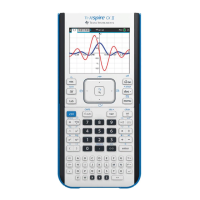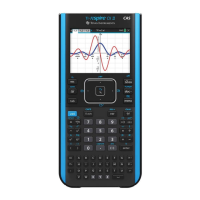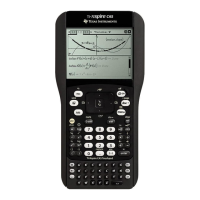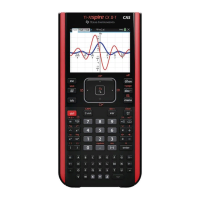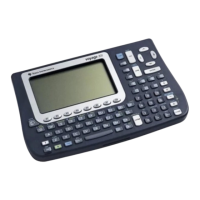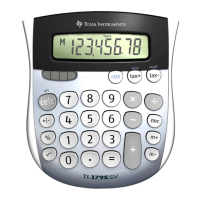exp()
u key
Returns the matrix exponential of
squareMatrix1. This is not the same as
calculating e raised to the power of each
element. For information about the
calculation method, refer to cos().
squareMatrix1 must be diagonalizable. The
result always contains floating-point
numbers.
exp►list()
Catalog >
exp►list(Expr,Var) ⇒ list
Examines Expr for equations that are
separated by the word “or,” and returns a
list containing the right-hand sides of the
equations of the form Var=Expr. This
gives you an easy way to extract some
solution values embedded in the results of
the solve(), cSolve(), fMin(), and fMax()
functions.
Note: exp►list() is not necessary with the
zeros() and cZeros() functions because they
return a list of solution values directly.
You can insert this function from the
keyboard by typing exp@>list(...).
expand()
Catalog >
expand(Expr1 [, Var]) ⇒ expression
expand(List1 [,Var]) ⇒ list
expand(Matrix1 [,Var]) ⇒ matrix
expand(Expr1) returns Expr1 expanded
with respect to all its variables. The
expansion is polynomial expansion for
polynomials and partial fraction expansion
for rational expressions.
The goal of expand() is to transform Expr1
into a sum and/or difference of simple
terms. In contrast, the goal of factor() is to
transform Expr1 into a product and/or
quotient of simple factors.
Alphabetical Listing 67

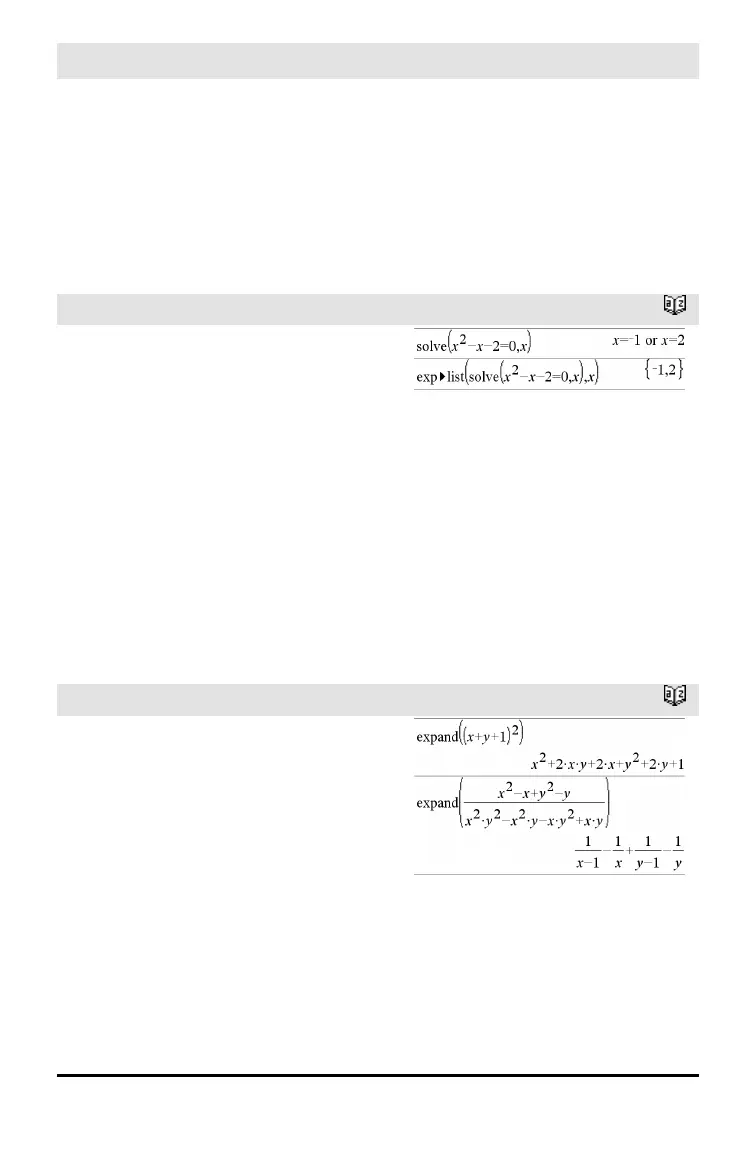